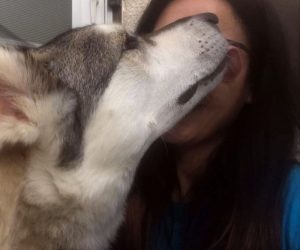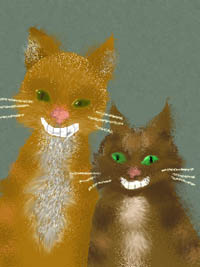 I never dreamed I’d be a reptile owner. But I guess it could be considered fate when I found myself agreeing to adopt two middle aged bearded dragons. A teacher at the school I work at brought the beardies to live there after her son went to university. He couldn’t take his pets with him. This new arrangement wasn’t the best for the lizards, but my son couldn’t tear himself away from their tank in the corridor. The teacher approached me with a proposition, and after a lot of thought, I agreed to adopt them. So, one cold winter day, we bundled up our new pets in blankets and a hot water bottle and moved them to their new home.
I never dreamed I’d be a reptile owner. But I guess it could be considered fate when I found myself agreeing to adopt two middle aged bearded dragons. A teacher at the school I work at brought the beardies to live there after her son went to university. He couldn’t take his pets with him. This new arrangement wasn’t the best for the lizards, but my son couldn’t tear himself away from their tank in the corridor. The teacher approached me with a proposition, and after a lot of thought, I agreed to adopt them. So, one cold winter day, we bundled up our new pets in blankets and a hot water bottle and moved them to their new home.
Surprisingly, the two scaly siblings grew on all of us. I started talking to them when I passed by the tank, and we found they were quite social. A favourite spot for them was to sit on my son’s shoulder while he watched television. Even my husband couldn’t help but check up on them every once in a while. Feeding them crickets was kind of amusing and not as “icky” as I thought it would be, but, thankfully, we found out they ate mostly salad. I read every book I could get my hands on to make sure I was doing the right things for them. And we quickly found out that, despite the fact that bearded dragons have become a popular pet and require less maintenance than other reptiles, they have their own specialized care needs.
The popularity of exotic pets has been rising over the last two decades and shows no sign of slowing down. Exotic pets are defined by veterinarians and animal welfare organizations as anything other than a dog or cat, and that is deemed unusual and cannot be fully domesticated. This definition includes birds, reptiles, fish, small mammals such as rodents, rabbits and ferrets, and pets of the bug variety such as scorpions and tarantulas. According to the Pet Industry Joint Advisory Council of Canada, the most recent statistics estimate that 2,850,000 households in Canada have an exotic pet and of that, 543,000 households own a reptile. There are, however, limits to what can and cannot be kept as pets, and these regulations vary provincially; such as no venomous snakes, no primates, no endangered animals, and even no domestic farm animals when kept inside a dwelling. But, judging by the variety of pets now found in pet stores and bred by private breeders, the list of out of the ordinary pets is growing and becoming commonplace.
This does not mean that caring for one of these critters is simple. It is so easy to pick out and purchase one from a pet store or breeder, but all too often people do so without knowing what is really involved in caring for a particular species. Often, people do not do much research and, at worst, these animals are an impulse buy where the owners have no idea how to care for them. Consequently, rescue organizations are seeing a rise in exotic pets surrendered to them, and there are ads for exotic pets on buy and sell sites where the owners admit that they can no longer give their pets the time or care they require.
So if you are thinking about welcoming an unusual pet into your life, here are some things to consider before you do so.
The most important aspect of pet ownership is to research the basic care needs of the particular species before making the commitment. Not just for one generic type such as “saltwater fish”, but that animal in particular (such as “clown fish”) because the care needs can vary widely within the type of pet. This includes diet and nutrition, housing needs such as the amount of space they require, as well as any particular heating, lighting, or humidity requirements. It is also important to be aware of how long the pet will live and how large it will be when it is fully grown. Another point to consider is whether that species needs to be kept in pairs or groups, or if it prefers solitude. Also remember that many exotic pets need to be taken out of their enclosure for daily exercise, or bathed on occasion. And if you have young children or other pets, such as a dog or cat, it is very important to research how that exotic pet might react to loud noises or potential rough handling or other disturbances. For example, rabbits may appear docile but they actually need daily interaction with their owners and daily exercise out of their hutch. Ferrets are an increasingly popular pet, but they need regular medical checkups and immunizations. Hedgehogs and some lizards are prone to hibernation in the wild, but check with a vet whether this behavior at home should be encouraged. Vets recommend yearly checkups for exotic pets, even for reptiles such as snakes and bearded dragons, to check for infections and parasites. There is an increasing number of veterinarians that specialize in the care of exotic pets, but these medical practices are often more common in urban centres rather than rural areas, so it is a good idea to also research whether specialized vet care is readily available.
While the information found on the internet can be helpful, pet forums can give a lot of conflicting information. If you can’t get advice from a medical professional, another great source of information is an experienced pet society. There are many breed-specific groups being formed all over and it is always great to learn about your chosen animal and share the trials as well as the funny side of owning your pet.
There are new varieties of exotic pets that are available in the pet trade and becoming more acceptable as pets, such as sugar gliders, giant African land snails, hermit crabs and “new” species of tortoises and lizards. But while these pets can be a conversation starter for their owners, the most important thing to remember that, despite the novelty factor that an exotic pet provides, any pet is a huge responsibility. The commitment in providing care should not be taken lightly. But there are so many great things about pet ownership?no matter whether your ideal choice is furry, scaly, prickly or even a bit slimy. With the right care, exotic pets can be a great addition to your family.
Carla has been known to bounce article ideas off her bearded dragons. She says they make great study partners.


